Difference between Kerala Tribe & Himachal Tribe – Indigenous and tribal peoples are often known by national terms such as native peoples, aboriginal peoples
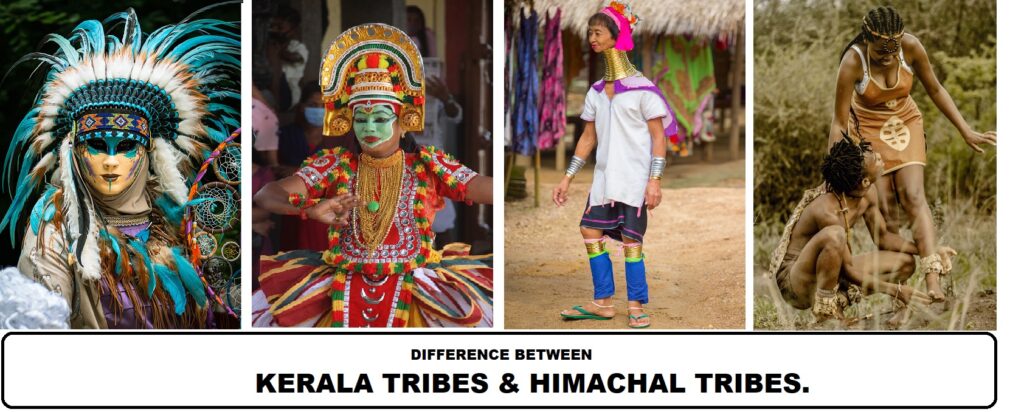
Indigenous and tribal peoples are often known by national terms such as native peoples, aboriginal peoples, first nations, adivasi, janajati, hunter-gatherers, or hill tribes.
The tribes in India form an important part of the total population. It represents an element in Indian society which is integrated with the cultural mosaic of our civilization. The tribal population of India constitutes nearly 8 percent of the total population. The Scheduled Tribes are notified in 30 States/UTs and the number of individual ethnic groups, etc. notified as Scheduled Tribes is 705. The tribal population of the country, as per the census, is 10.43 crore, constituting 8.6% of the total population. 89.97% of them live in rural areas and 10.03% in urban areas.

Kerala Tribes
About 4 lakh tribal people live in Kerala and about half of this population has made the interiors of Wayanad their home. The tribals were the original inhabitants of the Wayanad region but with development, opened roads to this region, and commercial plantations began to sprout, there occurred a migration of settlers to this region and during the 1940s this migration enhanced tremendously displacing the Adivasis of the area. The tribes lost their land and dwindled in numbers and now they constitute only 20 percent of the total population of the district. They are mostly physically distinguishable with darker skin and stout-built physiques. They often live in houses made of a thatched roof, mud, bamboo, and brick houses set in swampy valleys and plateaus. Though many of them are said to be primitive tribes, all of them have a story of migration to the hills. It is likely to believe that these tribes were living there for several centuries.
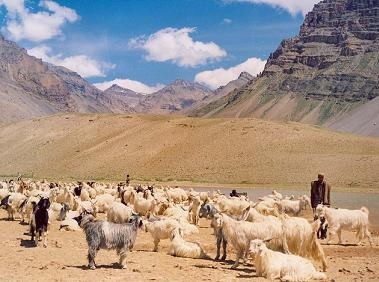
Tribes in Himachal Pradesh
Himachal Pradesh is a hill station in India that is considered as a tourism hotspot due to its diverse cultures and exceptional weather. There are numerous places to visit, ranging from breathtaking plains to snow-capped mountain ranges. The popular Himachal Pradesh tribes, provide ethnic significance to the entire province. The Tribal Development Department was established in 1976 with the goal of focusing on the social and economic upliftment of society’s most disadvantaged class, the Scheduled Tribes. Five Integrated Tribal Development Projects (ITDP) have been launched on the ground in Himachal Pradesh’s Scheduled Areas. Himachal Pradesh’s major tribes are the Kinnauras, Gujjars, Gaddis, Kinnaras or and Pangwalas. Gujjar – made up of Hindus & Muslims
DIFFERENCE BETWEEN KERALA TRIBE & HIMACHAL TRIBES.

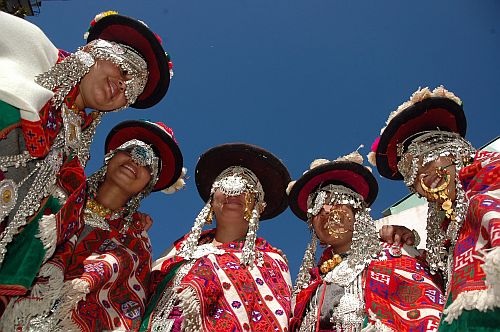
LOCATION
The Kerala tribes live on the Southern side in the forests and mountains of the Western Ghats, bordering Karnataka and Tamil Nadu whereas Himachal Pradesh, on the Northern side is a wholly mountainous region in the lap of the Himalayas range

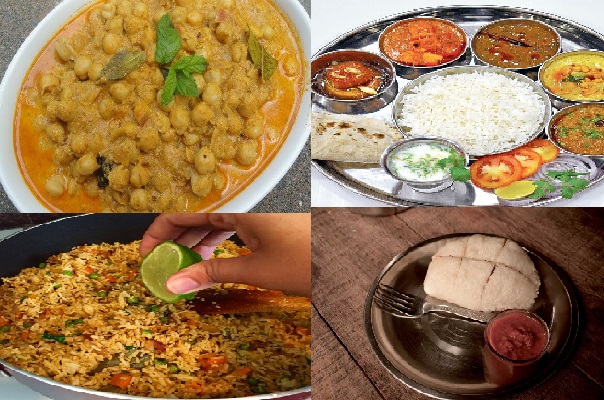
FOOD
Kurumulaku (Pepper) Kanji, Thallu curi, Kootu, and river fish are some of the tribal main dishes in Kerala and Chana curry, Dham, Tudikya bath and Siddu are the main dishes of Himalayas range.

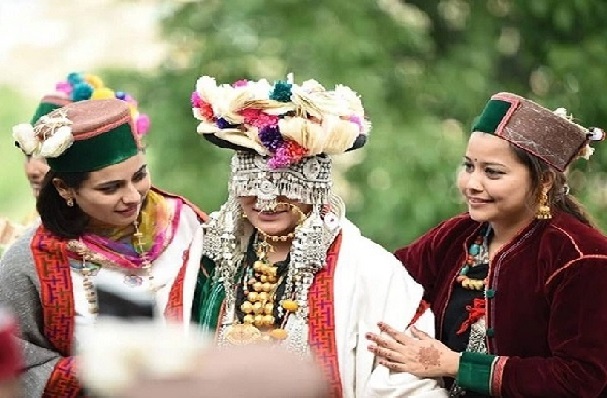
COMPLEXION
Not to be a racist, the Kerala tribals have a dark complexion in nature. The Himachal Pradesh tribals have a fair complexion.

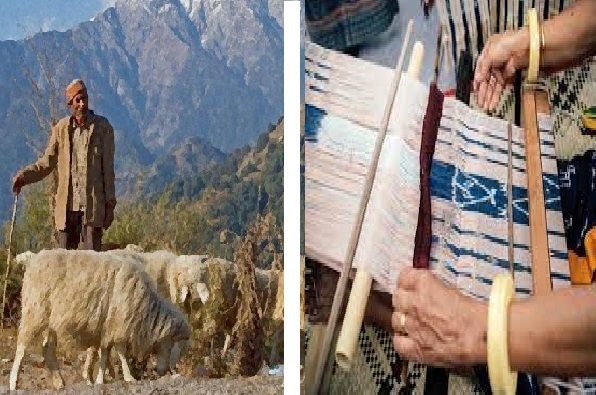
OCCUPATION
The Kerala tribal’s main occupations are collecting food and wood from the forest, fishing, wage labor, and cultivation, The Himachal Pradesh tribal’s main occupation is herding sheep and goats and preparing khadi costumes for them. They turned the wool into charkha, then used the wool to make blankets.
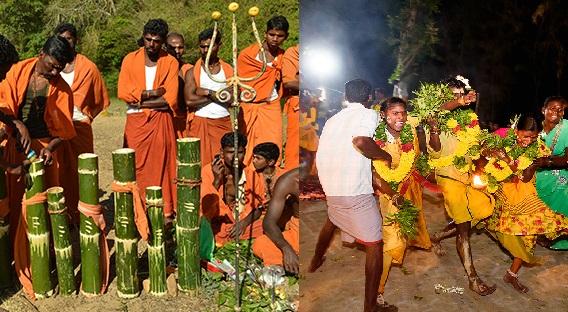
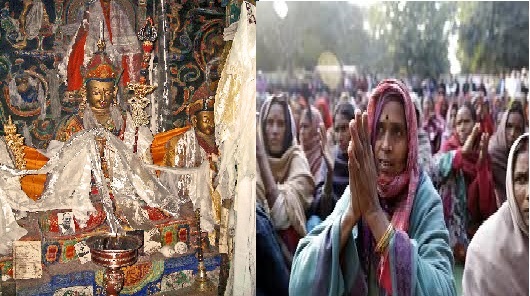
RELIGION
The Kerala tribals are more Hindus and Nature worshippers whereas the Himachal tribes have a mix and the majority share are Hindus and Buddhism.
The Kerala Tribal and the Himachal tribal regions has more similarities than difference. This is written for the purpose of Vth std project by Ryan Gabriell from Chinmaya Vidyalaya, Vaduthala.


